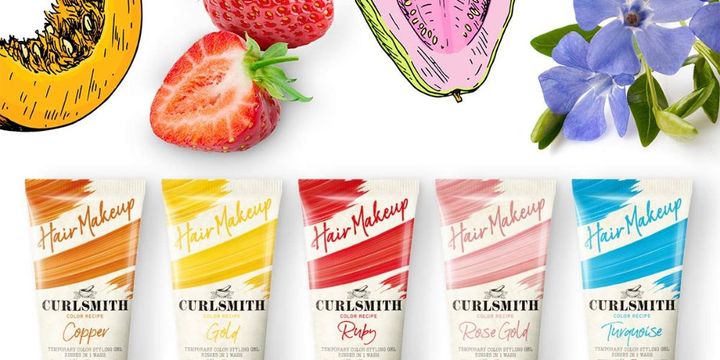Oil Pulling 101: What's the best oil for oil pulling?

Brushing our teeth twice a day has become an indispensable way of living for all of us. And still, dental issues can creep up unexpectedly.
But what if we could take our oral hygiene to another level with a very simple technique that doesn't require much time or any significant investment?
Welcome, Oil Pulling!
Oil pulling is an ancient Ayurvedic practice that dates back 3000 years and involves swishing oil in your mouth for a set amount of time to achieve various health benefits.
The practice has recently regained popularity, and many people are curious about what it is and what are the best oils to use for oil pulling.
- This article contains affiliate links. We may receive a commission (at no cost to you) if you make a purchase through a brand link below. Learn more here.
Quick links to best oils for oil pulling
💚 Virgin Coconut oil - Parachute Naturalz
💚 Sunflower oil - Farm to Market
What is oil pulling and how to do it?
Oil pulling is an effective method of cleaning teeth and gums in addition to using toothpaste and other dental products.
It involves swishing oil around in your mouth for about 10 minutes
It is very easy to do and doesn't require any special equipment or ingredients.
All you need is some good-quality oil and about 10 minutes of your time each day.
Many health specialists like Dave Asprey or Sarah Gottfried recommend oil pulling as a great way to maintain oral health.
Oil Pulling Procedure:
- Place one tablespoon of oil in your mouth
- Swish it around for about 5-10 minutes until the oil becomes watery
- Spit the oil in a tissue (not in the sink as it can get clogged)
- Rinse with water
- Brush your teeth as usual
It is important to oil pull first thing in the morning on an empty stomach before you had anything to drink.
You can also oil pull in the evening before bed but this is optional.

Oil pulling benefits
This study on Oil pulling for maintaining oral hygiene discusses various benefits of oil pulling that go far beyond just healthy teeth.
It has been shown that oil pulling can:
- decrease the oral microbial count
- inhibit adhesion of plaque to teeth and oral cavities
- reduce gingivitis
- reduce halitosis
- strengthen oral cavity muscles and jaws
- whiten teeth
- improve general health
In another study - Effect of oil pulling on plaque induced gingivitis: a randomized, controlled, triple-blind study it was found that oil pulling therapy helped reduce plaque and bacteria in patients with gingivitis.
Oil pulling can also freshen the breath. As it has been shown in this study - Effect of oil pulling on halitosis and microorganisms causing halitosis: a randomized controlled pilot trial, oil pulling has been equally effective as chlorhexidine to freshen the breath of the patients and reduce harmful microorganisms.
All in all, oil pulling is a great and simple way to improve your oral health.
But what are the best oils to use for oil pulling?
Many different oils can be used, but some oils are better than others.
The first thing to remember is that natural, unrefined oils will be best as they contain vitamins, antioxidants, and antimicrobial compounds.
Let's have a look at some of the best oils to use:
Sesame oil - Flora
Sesame oil pulling has been traditionally used in Ayurveda to perform the oil pulling procedure.
Sesame oil is a great choice because it has antibacterial and antiviral properties. It also helps to improve gum health and reduce bad breath.
This sesame oil by Flora is 100% pure and cold-pressed. It comes in an 8.5 Oz glass bottle which is the perfect size to keep in your bathroom cabinet and it is easy to recycle after use.

Virgin Coconut oil - Parachute Naturalz
Virgin coconut oil is very popular for oil pulling.
It has antibacterial and antifungal properties, which can help to improve oral health. That's why most people recommend oil pulling with coconut oil.
In addition, unrefined coconut oil has a very pleasant taste and smell which makes the oil pulling therapy a whole lot more pleasant.

This virgin and unrefined coconut oil from Parachute Naturalz is USDA Certified and has a great taste and smell.
It comes in a glass jar which is easy to recycle after use.
A great option for oil pulling.
Olive oil - Desert Miracle
Olive oil is a great choice for oil pulling.
Olive oil is commonly available in every household so it's an easy option to pick. It contains vitamin E, which is known to boost immunity and fight inflammation.

Desert Miracle award-winning olive oil is extra virgin, cold pressed, and polyphenol-rich. It is produced in Morocco and has a pleasant taste.
It comes in a 17 Fl Oz glass bottle which will last you a long time.
Sunflower oil - Farm to Market
Sunflower oil is a good choice for oil pulling because it is high in vitamin E, which is beneficial for oral health.
Vitamin E helps to reduce inflammation and promote healing.
Sunflower oil also has antimicrobial properties, which can help to prevent the growth of bacteria in the mouth.

The Farm To Market 100% pure Sunflower oil is of the purest quality and finest taste.
It is a good budget and it comes in a 17 fl oz glass bottle that will last you a long time.
Frequently Asked Questions
Does oil pulling replace brushing?
It doesn't!
Oil pulling should be used as an addition to brushing and flossing your teeth to reap additional benefits for your oral health like removing harmful bacteria, and preventing tooth decay and bleeding gums.
But you should never replace teeth brushing with oil pulling.
Does it matter what oil you use for oil pulling?
There is no definitive answer to this question.
Some people recommend using oils like coconut oil, or sesame oil, while others believe that any natural, vegetable oil will work.
It is ultimately up to the individual to decide which oil they prefer to use but it is always better to use virgin and unrefined oils.
Do you brush your teeth before or after you practice oil pulling?
First, you do the pulling, then the brushing.
Oil pulling is a great way to remove bacteria and plaque from your teeth, but it's not a substitute for brushing and flossing.
How often should you oil pull?
How often you oil pull depends on your preference. Try to do it at least once a day in the morning.
But even if you only do it a couple of times a week it will still be beneficial for improving oral health.
Can you add essential oils to your oil for oil pulling?
Yes, you can add essential oils to your oil.
Of course, it depends on the oil you use.
Coconut oil is solid at room temperature so you won't be able to mix essential oils with coconut oil without melting it first.
If you use liquid oils like sesame oil you can add a couple of drops of peppermint oil, clove oil, or orange or lemon essential oils to it.
Sources:
Shanbhag VK. Oil pulling for maintaining oral hygiene - A review. J Tradit Complement Med. 2016 Jun 6;7(1):106-109. doi: 10.1016/j.jtcme.2016.05.004. PMID: 28053895; PMCID: PMC5198813.
Asokan S, Emmadi P, Chamundeswari R. Effect of oil pulling on plaque induced gingivitis: a randomized, controlled, triple-blind study. Indian J Dent Res. 2009 Jan-Mar;20(1):47-51. doi: 10.4103/0970-9290.49067. PMID: 19336860.
Asokan S, Kumar RS, Emmadi P, Raghuraman R, Sivakumar N. Effect of oil pulling on halitosis and microorganisms causing halitosis: a randomized controlled pilot trial. J Indian Soc Pedod Prev Dent. 2011 Apr-Jun;29(2):90-4. doi: 10.4103/0970-4388.84678. PMID: 21911944.


